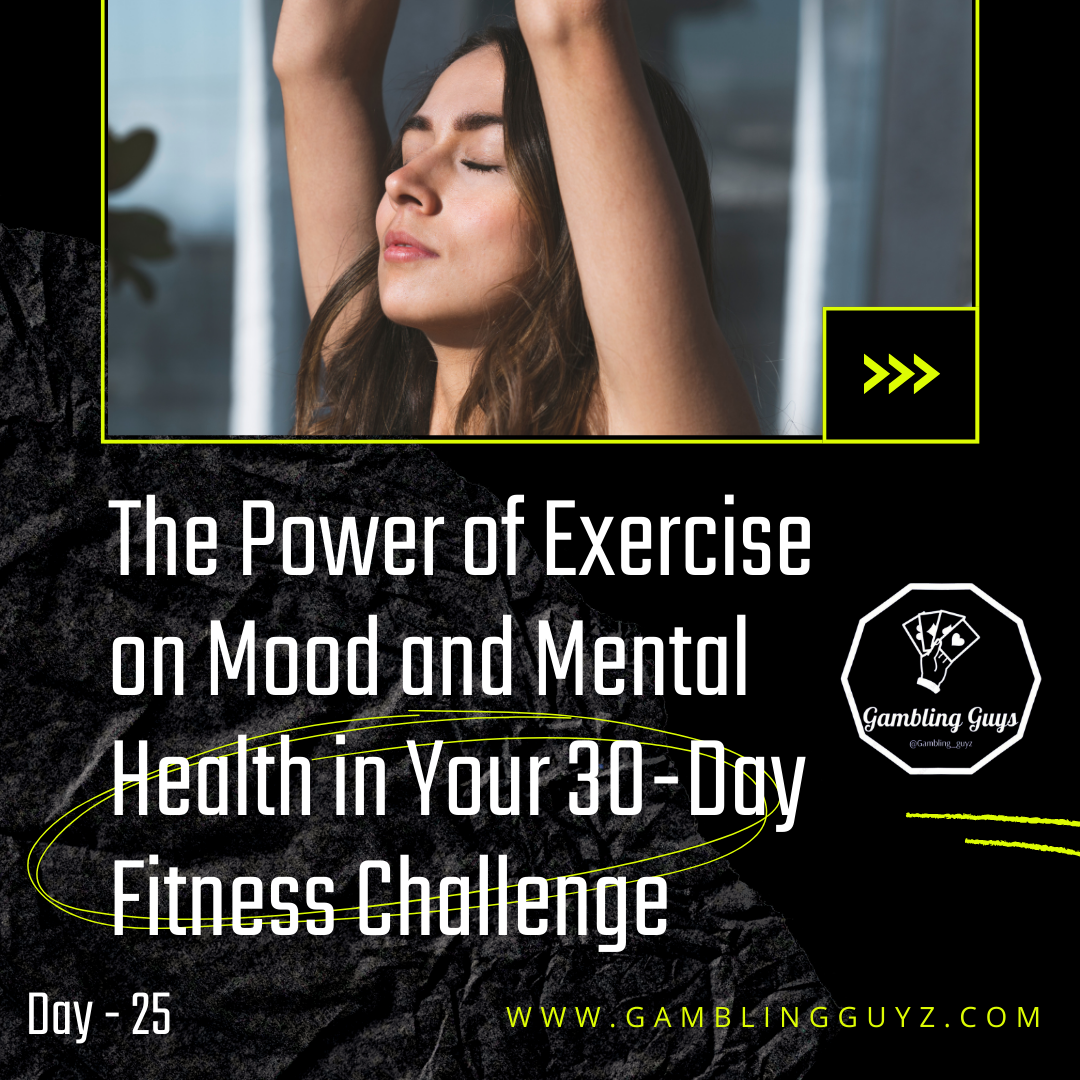Day 25: The Power of Exercise on Mood and Mental Health in Your 30-Day Fitness Challenge
Hello, fitness enthusiasts!
You've made it to Day 25 of our 30-Day Fitness Challenge, and we couldn't be prouder of your dedication and progress! As we continue our journey, it's essential to recognize the impact of exercise on not just our physical health but also our mental well-being. Today, we'll explore the psychological benefits of exercise and how incorporating regular physical activity can boost your mood and support mental health.
- Natural Mood Booster
One of the most immediate and well-known benefits of exercise is its ability to improve mood. Physical activity stimulates the release of endorphins, which are natural feel-good chemicals that reduce pain perception and enhance overall well-being. Even a short workout can help elevate your mood and combat stress, making exercise an excellent strategy for maintaining a positive mindset during the 30-Day Fitness Challenge and beyond.
- Reducing Anxiety and Depression
Regular exercise has been shown to help alleviate symptoms of anxiety and depression. Engaging in physical activity can promote the production of brain-derived neurotrophic factor (BDNF), a protein that supports brain health, and may help regulate mood and anxiety. Additionally, exercise can provide a healthy distraction from negative thoughts and promote a sense of accomplishment and self-efficacy.
- Improved Sleep Quality
Exercise can also contribute to better sleep quality by helping regulate your sleep-wake cycle and reducing stress and anxiety. Adequate sleep is crucial for overall mental health, as it allows your brain to process emotions, consolidate memories, and recharge for the next day.
- Enhanced Cognitive Function
Regular physical activity has been linked to improvements in cognitive function, including memory, attention, and problem-solving skills. Exercise promotes increased blood flow to the brain, which supports the growth and maintenance of brain cells and connections. By incorporating regular workouts into your routine, you can support long-term brain health and cognitive function.
- Social Connections
Exercise can also provide valuable opportunities to build social connections, whether through group fitness classes, sports teams, or workout buddies. Social support is crucial for mental health, and engaging in physical activities with others can foster a sense of belonging and camaraderie.
- Tips for Maximizing the Psychological Benefits of Exercise
-
Choose activities you enjoy: You're more likely to stick with an exercise routine if you genuinely enjoy the activities. Experiment with different workouts to find what resonates with you and brings you joy.
-
Set realistic goals: Establish achievable goals to help you stay motivated and maintain a sense of accomplishment throughout your fitness journey.
-
Be consistent: Aim to make exercise a regular part of your routine. Consistency is key to reaping the psychological benefits of physical activity.
-
Listen to your body: Remember that rest and recovery are essential for mental health as well. Strive for a balance between exercise, rest, and other self-care practices.
As we enter the final stretch of our 30-Day Fitness Challenge, keep in mind the incredible impact exercise can have on your mental health. By incorporating regular physical activity into your routine, you can improve your mood, support cognitive function, and foster overall well-being. Let's finish these last five days strong and carry these positive habits into the future!

